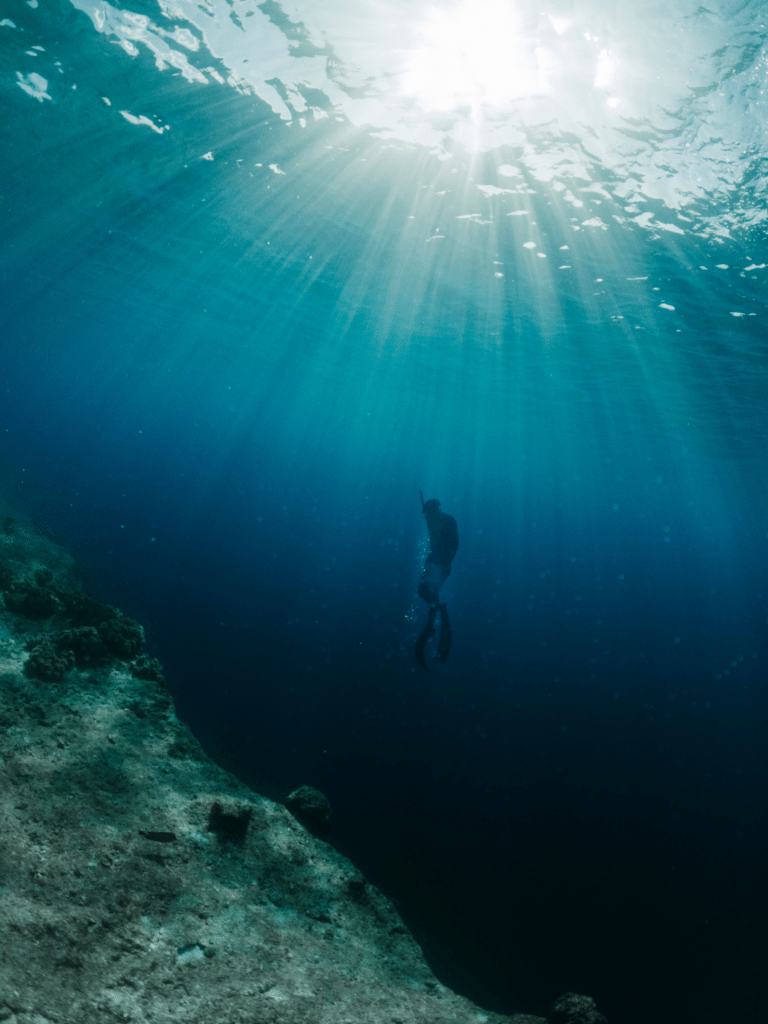Rottnest Island
After three visits to Coogee Beach, a thirty-minute ferry ride, all three classes arrived at Rottnest Island. We spent the day snorkelling and bonding. This trip put our skills to the test, not just our little snorkelling tricks but also things such as our organisation & initiative. At the time we didn’t even realise we were using these skills! It came so naturally & felt automatic, only when our teacher asked us to reflect on the trip did we realise we had developed so many more skills than just duck dives and clearing our snorkels, skills we would use for our whole lives.
Personal Development in Muir
If there is one thing Muir has taught me it is how important it is to connect with nature. The first time we went snorkelling we were a bit nervous and confused as to what to do, as we kept going out, we swam with schools of fish, swam through underwater caves, saw jellyfish, had competitions and learnt how to live in the moment and enjoy these little things. Pressing pause on life when you’re underwater, fish swimming around you, the silence and slowly floating up to the surface. Outdoor ed requires lots of skills, especially Muir which is a course involving snorkelling, orienteering and archery. But it also taught us how to be mindful and handle ourselves when life is overwhelming.
Trust
It’s really important that you can communicate well within your group, whether it’s underwater or on land. This is a skill we all had to develop throughout the course. From the very first lesson, we had an activity where all except two in the group we blindfolded, this built up to us being able to communicate well underwater and trusting each other’s judgement when orienteering. This was crucial considering we are required to be in pairs when snorkelling and groups of two or three for orienteering. We have to support and help each other and that requires a high level of trust.
Initiative
All aspects of outdoor ed require a lot of independence and you have to be willing to take on a role. Everyone has a part to play, and you constantly have to be willing to take on responsibility and lead the group. Before we went on our practicals, at school we would go through SAFE SNORKEL, signs & skills to make sure we all knew what we were doing. At the start, we would all end up waiting for someone else to step up which resulted in all of us just standing there in our circle of love. Slowly but surely, we learnt that we all had to contribute if we wanted to quickly get through the brief and get in the water. So by our last Coogee trip and Rotto our group was able to go through SAFESNORKEL, the history of the area and signals swiftly and thoroughly so we could get on with our snorkelling. We increased our efficiency and took initiative instead of waiting for others to do so, building our confidence. It helped that we were all getting closer so if any of us missed something out or got stuck we would be there to help them. having initiative is important for taking on leadership roles later on and being a valuable member of any community.
Critical thinking
As we went on our four excursions we realised what worked for our group and what didn’t, so we were constantly trying out new things and changing routines and ideas to what suited us and what didn’t. An example of this is when it was raining on one of the outings so before we got out of the bus we hung our towels near the door inside so that when we got out of the water one person could hand them all out ensuring none of the towels or the bus got wet. This helped us improve our organisation skills, by realising what we would have to do in order to get the most snorkelling time and what we would have to get done on the bus so that we could maximise our snorkelling time and ensure we could make it back to school in time for our next class. Even though this was a little thing it helped us overall, and made our excursion so much more efficient and organised. Similar things happened when orienteering, but critical thinking occurred more in our little groups when we got lost or starting arguing about which direction we should be travelling in. Even though these situations seemed quite stressful at the time we learnt so much from them and we can look back and laugh at them now. Having this skill is crucial to use in my school life but also in my jobs later on.
Leave No Trace
SAFE SNORKEL. Safety, accidents, first-aid, emergency, sun, nourishment, ocean, reef, keep together, environment…
Leave no trace.
This is one of the most important aspects and one that is very relatable to our snorkelling unit was leave what you find, the smooth colourful shells that you want to take home as a memoir could have been a new home for a crab, or if you decide to take a bit of coral home with you, you are destroying the home of many sea creatures and others will not be able to appreciate it later on because even if it only s bit to you it will have a cumulative effective if everyone has this attitude.
Another aspect is disposing of waste properly. Leaving rubbish anywhere is destructive to the environment because even if you don’t directly litter on the beach or near the water, winds, rain and animals could easily take it to the ocean. We have to clean up after ourselves, because not only does it pollute the environment it can harm sea creatures, land animals and birds.
